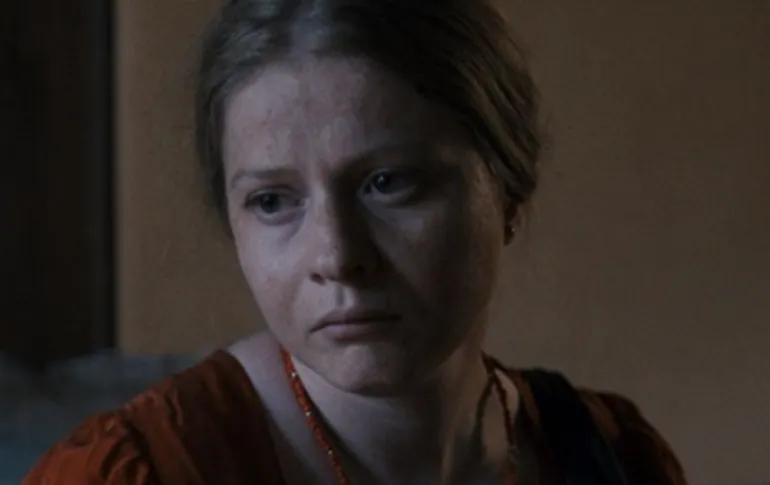Sylvia Le Fanu’s “My Eternal Summer” (Min evige sommer) narrates a tale of loss and acceptance with quiet, measured empathy and emotional magnanimity. The director doesn’t rush scenes. She lets the protagonist, the fifteen-year-old Fanny (Kaya Toft Loholt), navigate one final summer with her dying mother, Karin (Maria Rossing).
Fanu’s film sweeps through a sense of loss that totally rejigs one’s sense of reality. Everything threatens to slip away. When hit with loss or an impending stature of it, one can be utterly at sea, floating away from a firm connection to those around them. Rash mistakes are made, and crippling fears hasten along what one may just as well regret later. Fanny seeks to escape the truth of the severe reality. It leads her to both sway away from and ram into relationships without grappling with the consequences. It’s a self-destructive path rife with confusion and uncertainty and misdirected hurt.
There’s no one to guide Fanny along a way of articulating what gnaws at her. Her father sticks to her mother’s side, quiet and caught up in his sadness. When she tells him she wishes he asked about her feelings, he insists against being recklessly intrusive. Silently, he urges her to stake out her own private reckoning. She must give her mother a chance and make her feel that she’s not an absent mother because of her escalating sickness.
Fanny drifts and feels neglected. She doesn’t know how she can process it all and chug ahead. We witness a life paused, wrangling for meaning and direction in the presence of overwhelming pain and grief. Fanny has no space for articulation. When struck with such insurmountable, inevitable preponed death, how does one prepare for it without being wholly splintered and ripped apart? The screenplay by Fanu and Mads Lind Knudsen desists from the slightest excess of melodrama. The tone is of repressed emotionality, straining to express itself but held back.

The tragedy is in the fell swoop of mortality upon the family. There’s an acute awareness of what’s on the cusp, even while a moment of celebration is culled together. It cannot be held at bay. Death thrusts forth, hitting out, scalding, and souring the atmosphere. It shrouds everything in a claustrophobic bind of finality and denial. Escape is impossible. Fanny chafes at this. She’s discomfited by it, choosing to pluck herself out of her mother’s vicinity, which immerses her in a deep, unshakable terror. Hence, she plunges into and out of a relationship that she is stuck in a flailing zone.
Loholt is brilliant as a young person edging off and unmooring in the forthcoming crush of loss. In a film that centers on the fuzziness of emotional disorientation, she lends a particularity of edge and dimension, making us understand an individual journey of tapering off, untethered and severed from due responsiveness.
Where the screenplay flubs to some degree is the space it accords to the dying mother, as well as a wordy, banal, climactic attempt to air her apprehensions and emotions. For a film where a parent-child equation is central, you may be left wanting for a sharper delineation of the mother’s vacillating health as she slips in and out of concerted stability. She remains the approximation of a phantasm who wishes to register her presence and be by her daughter’s side, but her health doesn’t permit it.
“My Eternal Summer” also fumbles in its later stretches as the daughter gathers herself and marches ahead, carrying her mother’s faded presence into the future. A sense of direction she summons, a resolve to pick herself up and assume confidence in her wishes that also retains her mother’s spirit in myriad ways, these ideas don’t come together as smoothly as designed. Nevertheless, the emotional textures are well-realized, and these bumps are overcome.



![Nuevo Rico [2021]: ‘SXSW’ Review – A Hypnotic Short About Ambition, Success and Betrayal](https://79468c92.delivery.rocketcdn.me/wp-content/uploads/2021/03/nuevorico-768x432.jpg)
![Old Henry [2021] Review – A Lean Western that Leans Too Much on Familiar Tropes](https://79468c92.delivery.rocketcdn.me/wp-content/uploads/2021/09/Old-Henry-2021-768x384.jpg)
![Zero to Hero [2021]: ‘NYAFF’ review – A compassionate look at the Life of a Paralympic champion](https://79468c92.delivery.rocketcdn.me/wp-content/uploads/2021/08/Zero-to-hero-768x432.jpeg)
![Choked [2020] Netflix Review – A tale of a crumbling marriage crushed by a socio-political metaphor](https://79468c92.delivery.rocketcdn.me/wp-content/uploads/2020/06/Choked-highonfilms-768x432.jpg)
